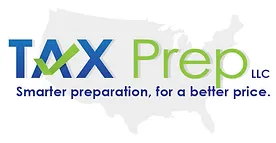Owning rental property can be a smart way to build wealth but it also comes with tax responsibilities. Whether you’re renting out a single-family home, an apartment, or just a room in your house, you need to report that rental income properly to stay compliant and maximize your allowable deductions.
Here’s a clear breakdown of what rental income is, how to report it, and which expenses you can deduct.
What Counts as Rental Income?
The IRS defines rental income as any payment you receive for the use or occupation of property. This includes:
- Monthly rent payments
- Advance rent (even if it’s for a future year)
- Security deposits (if not returned to the tenant)
- Lease cancellation fees
- Expenses paid by the tenant (if they cover something you normally would, like repairs or utilities)
- Services in exchange for rent (e.g., if a tenant paints the unit in lieu of payment)
Even if you rent out your property for only part of the year, the income you earn during that period must be reported.
Which IRS Form Should You Use?
If you own the property as an individual or a single-member LLC, you’ll typically report your rental income and expenses on Schedule E (Form 1040), Supplemental Income and Loss.
Schedule E allows you to:
- Report income from up to three properties on one form
- Deduct expenses (covered below)
- Calculate your net rental income or loss
If you’re part of a partnership or own the property via an S corporation or multi-member LLC, you’ll file differently, usually with Form 1065 or Form 1120S, and then report your share of the income on your personal return using a Schedule K-1.
Deductible Rental Expenses
The good news? You can deduct ordinary and necessary expenses related to managing and maintaining your rental property. Common deductions include:
- Mortgage interest
- Property taxes
- Repairs and maintenance
- Property management fees
- Insurance premiums
- Utilities (if paid by the landlord)
- Depreciation on the property (over 27.5 years for residential)
- HOA fees
- Legal or professional services (e.g., tax prep, attorney fees)
Important: Improvements (like adding a deck or renovating a kitchen) must be capitalized and depreciated over time, not deducted in full the year they’re made.
What About Partial Rentals or Shared Space?
If you’re renting out part of your primary residence (like a basement unit or a room on Airbnb), you’ll need to allocate expenses between personal and rental use based on square footage or usage.
Only the portion related to the rental is deductible.
Passive Activity Rules and Loss Limits
Rental real estate is typically considered a passive activity, meaning you may be limited in how much loss you can deduct. However, if you actively participate and your modified adjusted gross income (MAGI) is under $100,000, you may qualify to deduct up to $25,000 of rental losses.
Real estate professionals (those who spend 750+ hours a year in the business and meet material participation rules) can deduct losses without the passive activity limit.
Keep Detailed Records
Accurate documentation is critical. Keep:
- Rent receipts
- Lease agreements
- Invoices and proof of payment for expenses
- Mortgage and insurance statements
- Depreciation schedules
Using property management software or bookkeeping tools can make reporting much easier at tax time.
Reporting Short-Term Rentals (Airbnb, Vrbo, etc.)
If you rent out property for less than 15 days per year, you don’t have to report the income at all. But if you go over that threshold:
- Income must be reported
- Deductions are proportional to rental days
- You may receive Form 1099-K or 1099-MISC from platforms like Airbnb
Be aware that short-term rentals may be subject to self-employment tax in certain situations, especially if services like cleaning, meals, or concierge are included.
Final Thoughts
Reporting rental income isn’t just about compliance, it’s also an opportunity to lower your taxable income through legitimate deductions. Whether you’re a first-time landlord or building a real estate portfolio, understanding the rules around rental income is key to staying ahead.
If you need help navigating your specific situation or want to make sure you’re maximizing your deductions, consult a tax professional or visit bocataxprep.com for personalized guidance.

